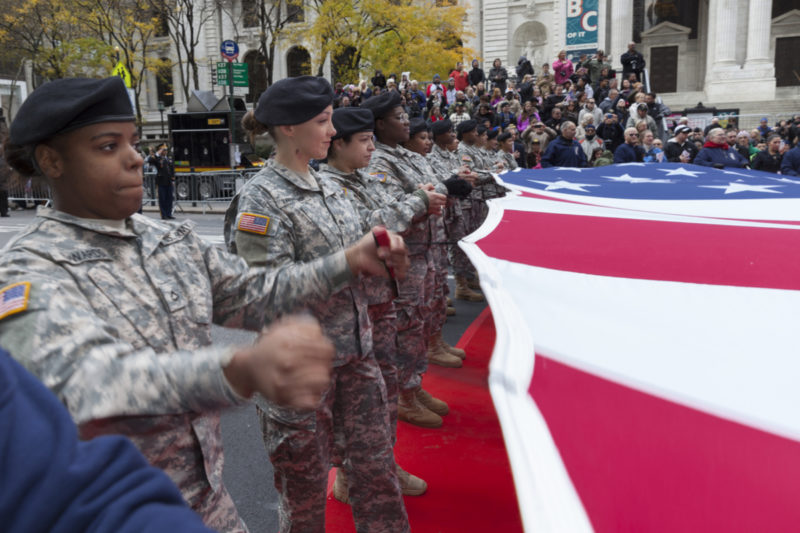‘Makes Me Feel Like a Bad Person’: Explaining the Toll of Military Abortion Policy
Half of respondents avoided visiting a military treatment facility out of fear of harming their careers and worries about confidentiality and stigma.

When the Army service member learned she was unexpectedly pregnant, she felt that the military doctor expected her to continue the pregnancy.
“It was awkward, ’cause [my clinician] kept asking me … all these questions for people that want to keep the baby,” said the enlisted servicewoman. “But I didn’t want to keep the baby.”
Her account was one of 21 published in a study Wednesday in the journal Perspectives on Sexual and Reproductive Health that sought to understand the abortion experiences of women in the military, where abortion care access is highly restricted.
And while the qualitative nature of the study cannot say whether these service members’ experiences are universal in the military, the paper explores an area of reproductive health care that’s received little research attention.
A team of researchers led by Kate Grindlay, an associate with Ibis Reproductive Health, conducted in-depth interviews between January 2015 and July 2016 among officers and enlisted members of the Army, Navy, Air Force, and Marine Corps to explore the service members’ understanding and opinions of the military’s abortion policy.
Research from 2011 suggested active-duty women have a higher rate of unplanned pregnancies: 72 unintended pregnancies per 1,000 women, compared to 52 per 1,000 in the general population. But military medical facilities are prohibited by federal law from performing abortions except in cases of rape, incest, and life endangerment. Military insurance only covers abortion care services in those cases.
The authors found most respondents didn’t know about the policies until they became pregnant. Most believed the military should provide abortion services and insurance should cover it. Some felt upset or abandoned upon learning of the military’s abortion policy.
As one enlisted navy servicewoman told researchers, “Once I told them I wasn’t going to keep it, it was like, ‘OK, you’re on your own.’ They couldn’t provide me any other help, even if that was something as simple as a reference.”
Half of respondents avoided visiting a military treatment facility out of fear of harming their careers and worries about confidentiality and stigma. Some who sought abortion care off base faced delays. One army officer recalled struggling with inadequate post-op care.
“I was still bleeding, and I wasn’t able to, like, use the restroom whenever I wanted, and I had to wear like tampons and stuff, which I know you’re not supposed to do after …. I wasn’t able to follow the post-op instructions as much as I wanted to,” the officer said.
More than half of service members believed the military’s policy could lead to more pregnant people carrying unwanted pregnancies to term. “The military makes it easy for you to have kids, but not easy for you to not have kids,” an Air Force officer said.
The average age of respondents was 26. Nearly three-fourths identified as Black, Latina, or multiracial. Many said the policy left them feeling stressed, unsupported, judged, burdened, or embarrassed.
It “kind of makes me feel like a bad person …. Since they don’t offer it, it makes you feel like they’re not supportive of it, which makes it feel like if you were to go to medical, they would look down on you for it,” an enlisted navy servicewoman told the researchers.
The cost of the policy was considerable, the authors found. All but three respondents paid out of pocket. The average cost was $493.
For some, the expense took their entire paycheck.
“The ultrasound my sister helped me pay for because it was like last minute, and I didn’t have enough money,” said one enlisted army servicewoman. “But I had half of it, and she paid for the rest. And then I had the abortion like a week or two after, and I paid for that with an entire check.”
The paper includes several recommendations, including better knowledge about the policy. The authors suggest a system to refer service members to providers and improve confidentiality.
